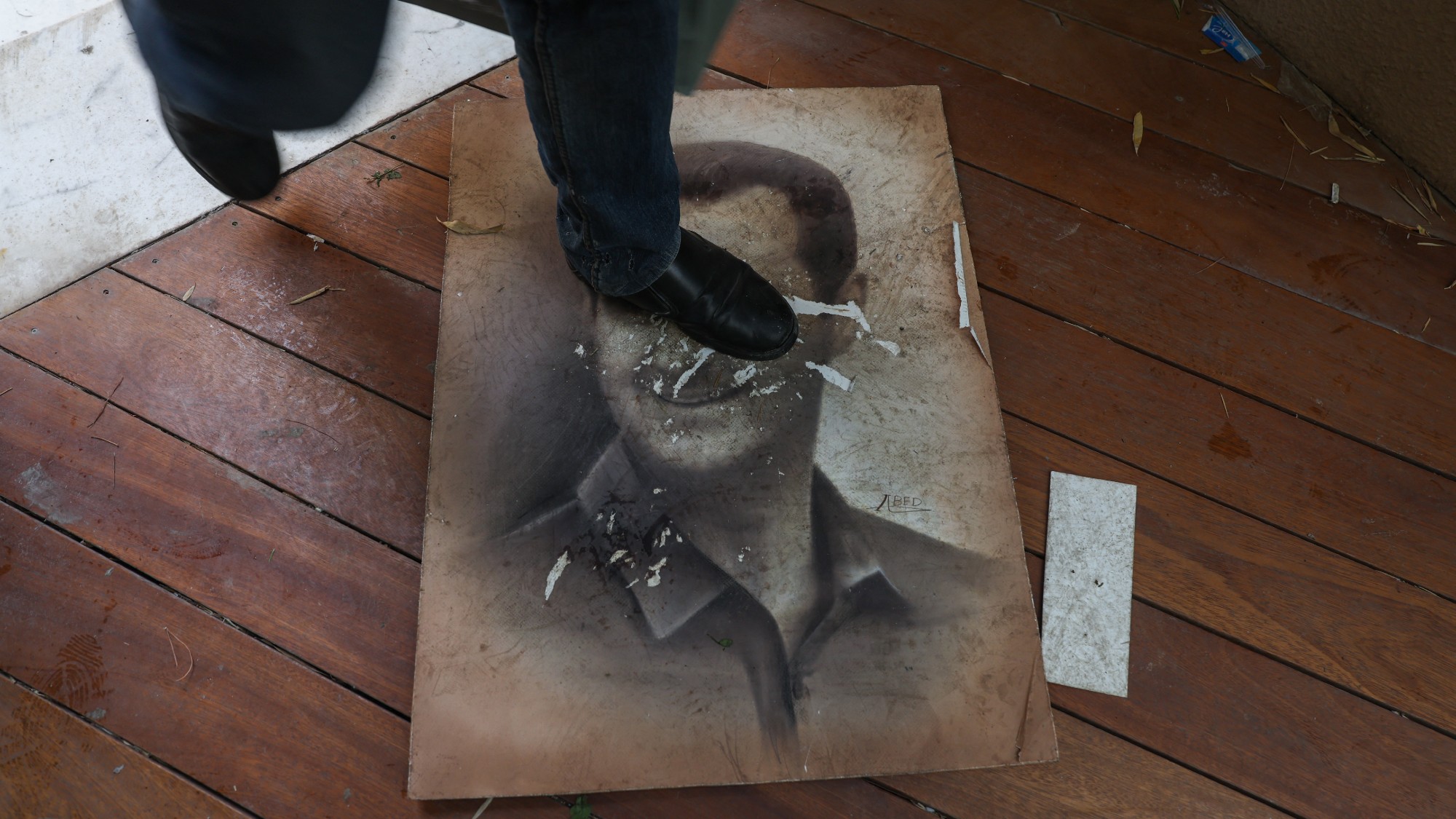How will the rebels rule Syria?
Fall of Assad regime is a 'historic opportunity' and a 'moment of huge peril' for country and region

A free daily email with the biggest news stories of the day – and the best features from TheWeek.com
You are now subscribed
Your newsletter sign-up was successful
The sudden and dramatic fall of Bashar al-Assad's regime in Syria is a "historic opportunity" but also a moment of "risk and uncertainty", Joe Biden has warned.
Once the euphoria subsides, containing the reprisals and score-settling that have built up over half a century of Assad rule will be "difficult", said Sky News. Various rebel groups backed by competing international powers control swathes of the country and, "we assume, they will all want their slice of power".
It is "a moment of huge peril" and further conflict seems likely "unless this can be managed in an orderly way".
The Week
Escape your echo chamber. Get the facts behind the news, plus analysis from multiple perspectives.

Sign up for The Week's Free Newsletters
From our morning news briefing to a weekly Good News Newsletter, get the best of The Week delivered directly to your inbox.
From our morning news briefing to a weekly Good News Newsletter, get the best of The Week delivered directly to your inbox.
What did the commentators say?
All eyes are now on Islamist militant group Hayat Tahrir al-Sham (HTS), "the dominant player among the diverse opposition" that captured Damascus and toppled Assad, said Daniel Byman in The New York Times.
Formed in 2017 through the merger of several factions including al-Qaeda's former Syrian affiliate, HTS is a "tricky proposition", said UnHerd, in that "it emerged from al-Qaeda but it also later fought them".
The group's leader, Abu Mohammed al-Jolani, is "educated, sophisticated and politically astute" and "has by all accounts been on a journey since he was dispatched from Iraq with bags of cash to bring jihad to Syria".
His "transformation" has been "carefully cultivated over the years", said Mina Al-Lami, a jihadist media specialist, on the BBC. Since Thursday, he has dropped "the nom de guerre associated with his jihadist past" and begun using his real name, Ahmed al-Sharaa, in official communiqués – part of an effort to "bolster his legitimacy in a new context" as his group consolidates its control over much of the country.
A free daily email with the biggest news stories of the day – and the best features from TheWeek.com
What next?
Syria's Prime Minister Mohammad Ghazi al-Jalali has remained in Damascus and said he will cooperate with the rebels on "a smooth and systematic transition of government functions", which will preserve "state facilities". How he is treated will be a "good indicator" as to whether Jolani and other rebel leaders are serious about upholding institutions and a government chosen by the people, said Sky News.
Engaging with HTS – currently designated a terrorist group by the US, UK and UN – will present its "challenges" , said Qutaiba Idlbi, a senior fellow at the Atlantic Council, but "the designation presents important leverage for the US and international partners". The Trump administration "could use that leverage to ensure HTS walks the walk as an acceptable actor" and does not compromise "US or regional security".
Jolani, for his part, has sought to redefine his organisation as a more moderate force, willing to uphold Syria's ethnic and religious pluralism. He has promised a "transition to a state of governance and institutions" and even suggested HTS, having achieved its military victory, could voluntarily disband to pave the way for a civilian government.
"That would be a very unusual transition in the Middle East," said the Los Angeles Times, "where players who gain power tend to hold on to it."
Elliott Goat is a freelance writer at The Week Digital. A winner of The Independent's Wyn Harness Award, he has been a journalist for over a decade with a focus on human rights, disinformation and elections. He is co-founder and director of Brussels-based investigative NGO Unhack Democracy, which works to support electoral integrity across Europe. A Winston Churchill Memorial Trust Fellow focusing on unions and the Future of Work, Elliott is a founding member of the RSA's Good Work Guild and a contributor to the International State Crime Initiative, an interdisciplinary forum for research, reportage and training on state violence and corruption.
-
 Samurai: a ‘blockbuster’ display of Japanese heritage
Samurai: a ‘blockbuster’ display of Japanese heritageThe Week Recommends British Museum show offers a ‘scintillating journey’ through ‘a world of gore, power and artistic beauty’
-
 BMW iX3: a ‘revolution’ for the German car brand
BMW iX3: a ‘revolution’ for the German car brandThe Week Recommends The electric SUV promises a ‘great balance between ride comfort and driving fun’
-
 Munich Security Conference: a showdown between Europe and Trump?
Munich Security Conference: a showdown between Europe and Trump?Today’s Big Question Report suggests European leaders believe they can no longer rely on the US for military support – but decoupling is easier said than done
-
 How did ‘wine moms’ become the face of anti-ICE protests?
How did ‘wine moms’ become the face of anti-ICE protests?Today’s Big Question Women lead the resistance to Trump’s deportations
-
 How are Democrats trying to reform ICE?
How are Democrats trying to reform ICE?Today’s Big Question Democratic leadership has put forth several demands for the agency
-
 Why is Tulsi Gabbard trying to relitigate the 2020 election now?
Why is Tulsi Gabbard trying to relitigate the 2020 election now?Today's Big Question Trump has never conceded his loss that year
-
 Will Democrats impeach Kristi Noem?
Will Democrats impeach Kristi Noem?Today’s Big Question Centrists, lefty activists also debate abolishing ICE
-
 Do oil companies really want to invest in Venezuela?
Do oil companies really want to invest in Venezuela?Today’s Big Question Trump claims control over crude reserves, but challenges loom
-
 What is China doing in Latin America?
What is China doing in Latin America?Today’s Big Question Beijing offers itself as an alternative to US dominance
-
 Why is Trump killing off clean energy?
Why is Trump killing off clean energy?Today's Big Question The president halts offshore wind farm construction
-
 Why does Trump want to reclassify marijuana?
Why does Trump want to reclassify marijuana?Today's Big Question Nearly two-thirds of Americans want legalization